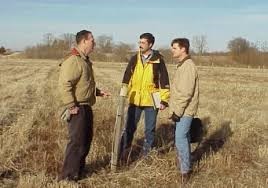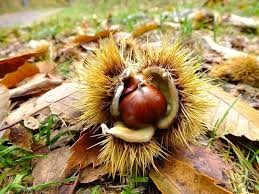LARRY GODSEY AND SUSTAINABLE NICHE AGRICULTURE, BY CLAIRE SCHMIDT
Welcome back once again to Stories from the Field and a new post in our Show-Me Folk blog. The blog is our dedicated space for staff, student workers, traditional artists, cultural experts, consultants, and community scholars to share photo essays on an array of topics in Missouri’s traditional arts and folklife.
Our latest blogger is Claire Schmidt, PhD, an assistant professor of English at Missouri Valley College in Marshall since 2013. Professor Schmidt teaches a variety of courses in the English Department and advises students in the Honors Program. Not only has Schmidt recently published her first scholarly book, she worked with students to publish a book of campus folklore that they collected in Marshall. Once upon a time, Schmidt also worked at the Missouri Folk Arts Program, first as a graduate intern and later as a graduate assistant. In addition to her many scholarly areas of interest, Schmidt is deeply interested in traditional foodways and penned the following post for us about her colleague Larry Godsey and his work with niche agriculture.
We thought December was a good time to publish Schmidt’s blog, since roasted chestnuts and pecans figure prominently in holiday recipes in Missouri and beyond.
Larry Godsey and Sustainable Niche Agriculture
Story by Claire Schmidt, PhD
Larry Godsey eats fresh fried catfish, microwaves his chestnuts, and likes his pecans straight off the tree. He comes from a long line of northwest Missouri farmers (Skidmore and Quitman, to be precise), and he is teaching a new generation of agricultural entrepreneurs to use 21st century business methods to make a living from native Missouri crops.
“I believe that we need to teach the next generation about the importance of alternative products. Our economy focuses so heavily on the commodities (corn, soybeans, wheat, etc.) that we often forget that there are other things that can be grown with our rich resources.”

Photo credit: University of Missouri Center for Agroforestry
Godsey (far right), who holds a PhD in Forestry and an MS in Agricultural Economics from the University of Missouri and a BS in Mathematics from Missouri Valley College, worked as the economist for the University of Missouri Center for Agroforestry, where he developed market research for local crops like black walnuts, elderberries, chestnuts, and pine straw.
“Often farmers choose to grow commodities because the infrastructure is in place to cheaply market those products. Niche products, such as elderberry or nut crops, require a considerable investment in marketing. If we could identify what it costs to produce an acre of elderberry and where it can be sold, then an individual landowner may consider elderberry as a production option on their property. Often landowners avoid production decisions because they are unsure of the costs or risks of production. With the work that we did, those costs and risks were identified so that producers could decide if it was a production decision they wanted to make.”
Godsey’s own family left farming because they could not compete with bigger farms.
“I believe that niche markets are the best way to maintain that small “family farm.” The farm I grew up on was 120 acres. In the 1950s, one-hundred-twenty acres would have been a good-sized family farm. In the 1980s, 120 acres was barely a hobby farm. We could not compete with the larger farms. If we would have focused on finding a niche (tree nuts, perennial crops, organic vegetables, etc.), we might still be farming that property today. Niche products have the potential to generate higher returns per acre if marketed properly.”
Now a professor and the director of the Agri-business program at his alma mater, Missouri Valley College in Marshall, Missouri, Godsey is committed to opening his students’ eyes to the rich possibilities of traditional native niche products. “My goal with the Agri-business program is to challenge the students to think outside the box, to seek new opportunities in agriculture, and to develop a basic set of intellectual tools that allows them to be good decision makers. Some of these students may go and work for a large international conglomerate such as Monsanto, while others may choose to go back and manage a family farm. Either way, my goal is to open up their eyes to the opportunities that are out there.”
Godsey added, “I also believe that we need to teach the next generation the concepts of self sufficiency, sustainability, and diversity. Skills like tanning, canning, sewing, food preservation, are all skills that are slowly being lost. Most alarming is a loss of the skill to cook meals from scratch.”
A well-known figure in Missouri agricultural economics, Godsey’s work abroad has included developing economic modeling for biofuels, including developing a model for Jatropha nut to produce biodiesel in Mexico, and redeveloping agricultural systems in Afghanistan through his position as Command Sergeant Major for the 1st Battalion, 138th Infantry Regiment.
“I was part of the Army’s first Agribusiness Development Team (ADT). Our mission was to help rebuild the economy of Afghanistan through the redevelopment of the agricultural sector. About 85% of the Afghan economy is based on agriculture; the Army needed specialists in this area that could get into remote areas and find ways to help the Afghan people.”

Photo credit: David Roberts, courtesy of the Missouri Valley College DeltaGodsey is currently deployed with an infantry battalion in the Middle East, but he will be warmly welcomed home in the new year by his wife (and college sweetheart) Lori, and his three daughters, MacKenzie, Kameron, and Regan. And even if he misses this year’s elderberry crop, his students and colleagues will be sure to gather the chestnuts that fall outside his office every September and tuck them away in the freezer to await his return.

